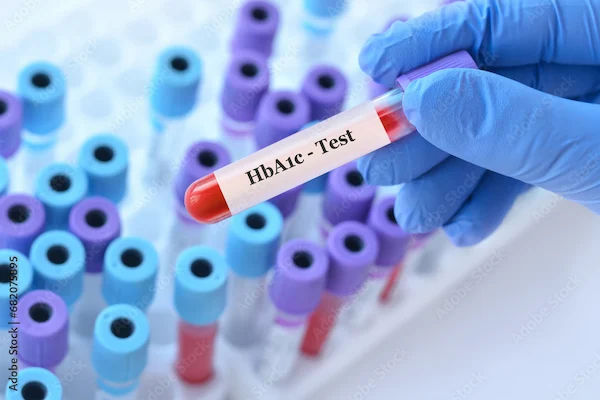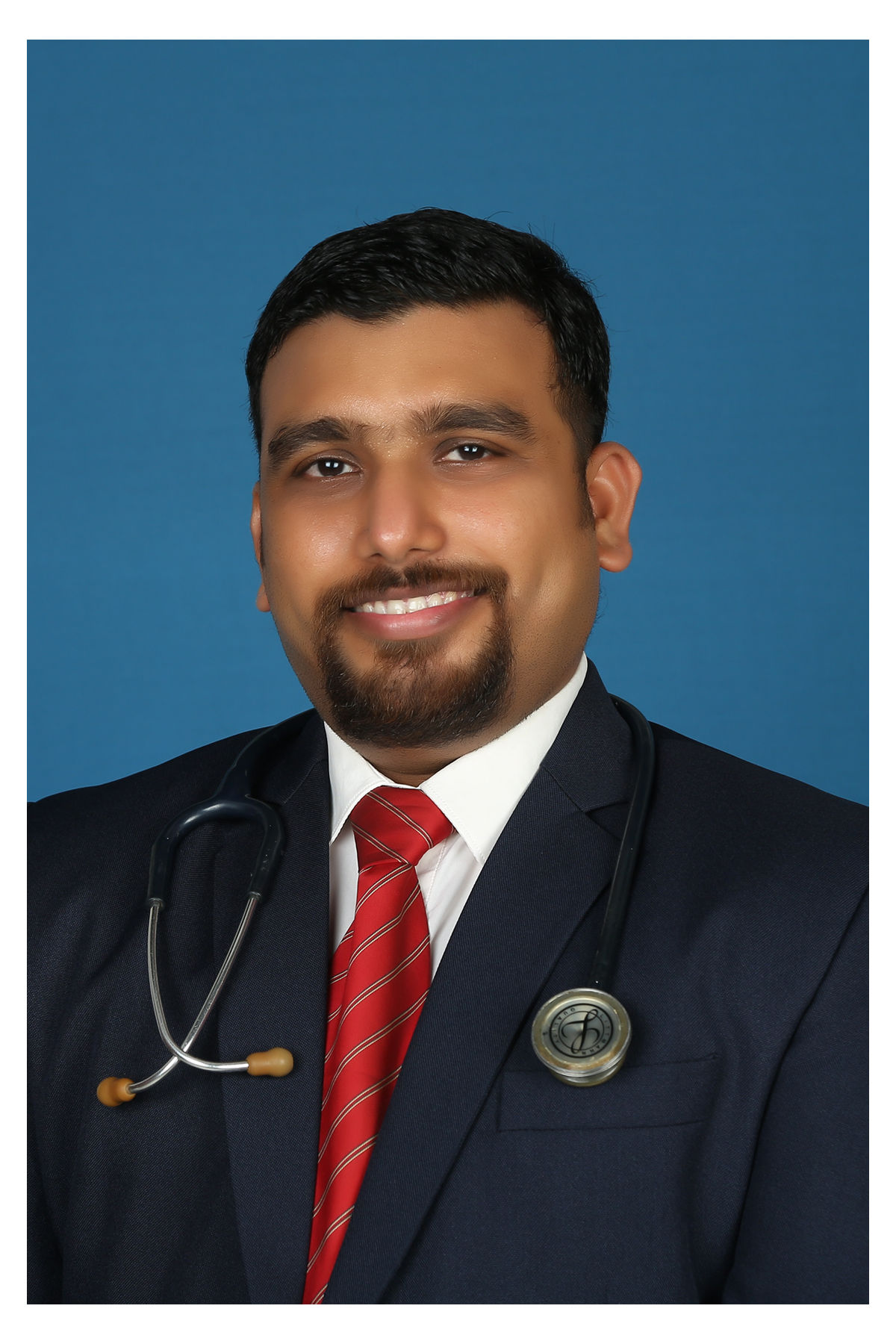How to Reduce HbA1c Levels?
Learn effective strategies to reduce HbA1c levels. Discover diet tips, exercise plans, and medical options for better blood sugar control.

Written by Dr.Sonia Bhatt
Last updated on 3rd Jul, 2025

Maintaining healthy blood sugar levels is crucial for preventing complications associated with diabetes, such as cardiovascular disease, nerve damage, and kidney issues. One key measure to assess long-term blood sugar control is the HbA1c level, which reflects your average blood glucose over the past 2–3 months. In this article, we’ll explore effective strategies to reduce HbA1c levels through lifestyle changes, medication, and proper monitoring.
Understanding HbA1c
Understanding what HbA1c is and its significance in diabetes management is the first step toward better blood sugar control.
What is HbA1c and Its Significance in Diabetes Management?
The HbA1c test (also known as the A1C, hemoglobin A1C, or glycated hemoglobin test) measures the percentage of hemoglobin in your red blood cells that has glucose attached to it. This test provides insight into your average blood sugar levels over the past 2–3 months, making it a crucial tool for diagnosing diabetes, prediabetes, and for monitoring diabetes management. An elevated HbA1c level indicates that your blood sugar has been consistently high, which increases the risk of complications over time.
How HbA1c Is Measured and What the Results Mean
The HbA1c test is done through a blood sample, with results expressed as a percentage. The higher the percentage, the higher your blood glucose levels have been. Here’s what the results typically mean:
Normal: Below 5.7%
Prediabetes: 5.7% to 6.4%
Diabetes: 6.5% or higher
Unlike other blood sugar tests, the A1C test doesn’t require fasting, so it can be done at any time of day. It gives a broader picture of blood sugar management over time, rather than just showing fluctuations from a single meal or day.
Importance of Lowering HbA1c Levels
Keeping your HbA1c in check can significantly reduce the risks of developing serious health issues.
Health Benefits of Maintaining Optimal HbA1c Levels
Keeping your HbA1c within a healthy range helps reduce the risk of developing serious diabetes-related complications, including:
Heart disease: High blood sugar can damage blood vessels, increasing the risk of cardiovascular issues.
Kidney disease: Chronic high blood sugar can lead to diabetic nephropathy, causing kidney damage.
Nerve damage: Prolonged high blood sugar can cause neuropathy, affecting the nerves in the hands, feet, and other areas.
By lowering your HbA1c, you reduce the risk of these complications and improve your overall quality of life.
Risks of High HbA1c Levels
Consistently elevated HbA1c levels can lead to long-term complications such as:
Retinopathy: Damage to the eyes that can lead to blindness.
Stroke: High blood sugar can increase the likelihood of blood clots, raising the risk of stroke.
Diabetic ketoacidosis (DKA): A potentially life-threatening condition where the body breaks down fat too quickly, leading to acidic blood.
Lowering your HbA1c is essential for preventing these serious health risks.
Lifestyle Changes to Lower HbA1c
By adjusting your diet, exercise routine, and stress management strategies, you can effectively support your diabetes management.
Importance of Physical Activity in Reducing HbA1c
Exercise is one of the most effective ways to manage blood glucose levels. It improves insulin sensitivity, helping the body use insulin more efficiently, and lowers blood sugar. Regular physical activity—such as walking, swimming, or cycling—can significantly reduce HbA1c levels. Experts recommend at least 150 minutes of moderate-intensity exercise each week for optimal blood sugar control.
Dietary Modifications to Manage Blood Sugar Levels
Your diet plays a key role in regulating HbA1c. Consider these tips to maintain stable blood sugar:
Limit refined carbohydrates: Foods like white bread, soda, and pastries cause blood sugar spikes.
Choose whole grains and fiber-rich foods: Whole grains, fruits, vegetables, and beans help keep blood sugar stable.
Include healthy fats and lean proteins: Healthy fats (e.g., avocados, nuts) and lean proteins (e.g., chicken, tofu) help stabilize blood sugar and promote overall health.
A registered dietitian or nutritionist can guide you in creating a meal plan tailored to your needs.
Stress Management Techniques
Chronic stress can raise blood sugar by triggering the release of stress hormones like cortisol. Managing stress through practices such as yoga, meditation, or deep breathing can help control blood sugar and maintain healthy HbA1c levels.
Medication and Treatment Options
Sometimes, lifestyle changes alone aren’t enough to control HbA1c levels. In these cases, medications become an essential part of treatment.
Common Medications Prescribed by doctor to Help Lower HbA1c
Several medications can help lower HbA1c and manage blood sugar levels in individuals with diabetes:
Metformin: Often the first-line medication for type 2 diabetes, metformin works by reducing glucose production in the liver and improving insulin sensitivity.
GLP-1 Receptor Agonists: Medications like liraglutide, semaglutide, and exenatide mimic a hormone that stimulates insulin release and slows gastric emptying. These drugs not only lower HbA1c but also aid in weight loss, benefiting overweight individuals.
SGLT2 Inhibitors: Drugs such as empagliflozin, canagliflozin, and dapagliflozin block glucose reabsorption in the kidneys, promoting glucose excretion in urine. They also provide cardiovascular and kidney protection.
Sulfonylureas: Glipizide, glyburide, and glimepiride stimulate the pancreas to release more insulin. However, they may cause hypoglycemia and weight gain, often requiring combination therapy.
DPP-4 Inhibitors: Sitagliptin, saxagliptin, and linagliptin inhibit the enzyme DPP-4, helping regulate blood sugar with a lower risk of hypoglycemia, though they are less potent than other options.
Insulin: For type 1 or advanced type 2 diabetes, insulin therapy may be necessary, available in rapid-acting or long-acting forms, helping regulate blood sugar levels.
Your doctor will help tailor the right medication regimen based on your needs.
Non-Pharmacological Therapies and Alternative Treatments
In addition to medication, some individuals explore non-pharmacological options. These can complement, but not replace, prescribed treatments. Always consult your doctor before trying alternative therapies:
Herbal Supplements: Some herbs or supplements may help manage blood sugar, including:
Cinnamon: Studies suggest cinnamon may modestly improve insulin sensitivity and lower HbA1c.
Bitter Melon: This fruit is traditionally used to lower blood sugar and may mimic insulin action.
Berberine: Found in several plants, berberine has shown potential in improving insulin sensitivity.
Acupuncture: Some research suggests that acupuncture may help improve blood sugar regulation and lower HbA1c by stimulating specific points that influence insulin production.
Lifestyle Changes: A combination of a healthy diet, regular exercise, and stress management can significantly contribute to managing HbA1c. For instance, weight loss and increased physical activity enhance insulin sensitivity and help reduce HbA1c levels.
Consult Top Diabetologist
Monitoring and Self-Care Practices
Consistent tracking helps you make informed decisions about your diet, exercise, and medications.
Importance of Regular Blood Glucose Monitoring
Regular self-monitoring of blood glucose (SMBG) allows you to track your blood sugar levels and understand how factors like food, exercise, and stress affect your HbA1c. It helps you make adjustments to your diet, exercise routine, and medication as needed.
Keeping a Diabetes Management Plan
Having a comprehensive diabetes management plan—one that includes regular glucose checks, medication, exercise, and diet—is essential for lowering HbA1c. Your doctor’s team can assist in developing a personalized plan that works for you.
Challenges in Lowering HbA1c
Achieving and maintaining lower HbA1c levels can be challenging due to various obstacles.
Common Obstacles Faced by Individuals with Diabetes
There are several challenges to lowering HbA1c, including:
Difficulty with medication adherence
Limited access to healthy food or exercise options
Emotional and psychological factors, like stress or depression
Overcoming these obstacles requires support from healthcare professionals, family, and a commitment to managing your health.
Overcoming Barriers to Effective Diabetes Management
Building a strong support system, setting realistic goals, and staying motivated are key strategies for overcoming challenges and effectively managing your HbA1c levels.
Conclusion
Lowering your HbA1c is vital for preventing complications related to diabetes and maintaining long-term health. With a combination of lifestyle changes, medication, and regular monitoring, you can take control of your blood sugar levels and significantly improve your quality of life. Work closely with your doctor’s team to develop a plan tailored to your specific needs, and remember that small, consistent steps can lead to meaningful improvements in your health.
Consult Top Diabetologist
Consult Top Diabetologist

Dr. Liritha C
General Physician/ Internal Medicine Specialist
5 Years • MBBS, MD (GENERAL MEDICINE)
Hyderabad
Apollo 24|7 Clinic, Hyderabad

Dr. Lakshmi Sanjitha Kakani
General Physician/ Internal Medicine Specialist
6 Years • MBBS, MD (General Medicine)
Visakhapatnam
Apollo 24|7 Clinic - Andhra Pradesh, Visakhapatnam

Dr. Lakshmi Sindhura Kakani
General Physician/ Internal Medicine Specialist
10 Years • MBBS, MD (General medicine)
Visakhapatnam
Apollo 24|7 Clinic - Andhra Pradesh, Visakhapatnam

Dr. Usha Gaddam
General Physician/ Internal Medicine Specialist
9 Years • MBBS, DNB (Internal Medicine)
Hyderabad
DR. USHA GADDAMS CLINIC, Hyderabad

Dr. Raveendran Sr
Diabetologist
14 Years • MBBS,MD,D.DIAB,FSM
Chennai
S R Clinic, Chennai
Consult Top Diabetologist

Dr. Liritha C
General Physician/ Internal Medicine Specialist
5 Years • MBBS, MD (GENERAL MEDICINE)
Hyderabad
Apollo 24|7 Clinic, Hyderabad

Dr. Lakshmi Sanjitha Kakani
General Physician/ Internal Medicine Specialist
6 Years • MBBS, MD (General Medicine)
Visakhapatnam
Apollo 24|7 Clinic - Andhra Pradesh, Visakhapatnam

Dr. Lakshmi Sindhura Kakani
General Physician/ Internal Medicine Specialist
10 Years • MBBS, MD (General medicine)
Visakhapatnam
Apollo 24|7 Clinic - Andhra Pradesh, Visakhapatnam

Dr. Usha Gaddam
General Physician/ Internal Medicine Specialist
9 Years • MBBS, DNB (Internal Medicine)
Hyderabad
DR. USHA GADDAMS CLINIC, Hyderabad

Dr. Raveendran Sr
Diabetologist
14 Years • MBBS,MD,D.DIAB,FSM
Chennai
S R Clinic, Chennai
